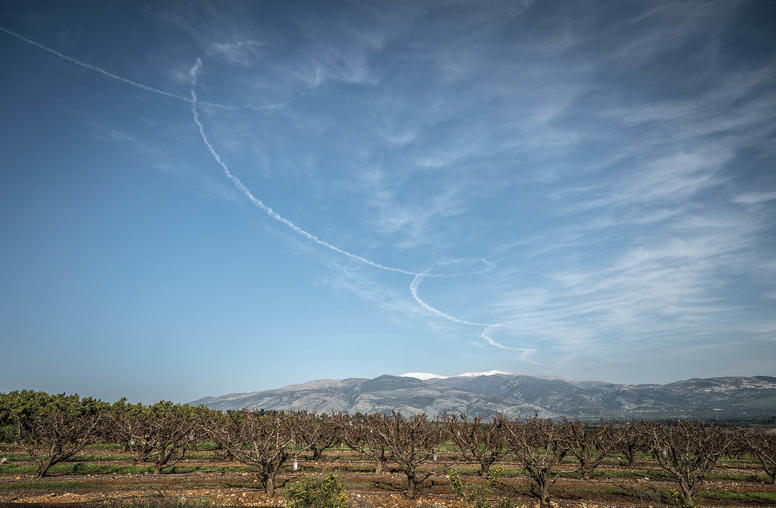Inaugural PeaceGame 2013
Chart the Best Possible Peace for Syria
Governments around the world regularly devote enormous resources to conducting “war games.” On December 9, the U.S. Institute of Peace (USIP) and The FP Group (FP) conducted the inaugural PeaceGame, focusing on “the best possible peace for Syria.” With one game in the U.S. and another in the Middle East, the semi-annual PeaceGames brought together the leading minds in national security policy, international affairs, academia, business, and media to “game” out how we can achieve peace in Syria. USIP and FP intended for the game to redefine how leaders think about conflict resolution and the possibility of peace.

Continue the conversation on Twitter with #PeaceGame.
Participants in this inaugural PeaceGame began with a discussion of potential scenarios for peace in Syria and the steps and conditions necessary to achieve it. Players assumed roles representing different stakeholders in the Syrian war. They explored scenarios representing different phases of a peace process: Achieving a Near-Term Political Solution, Pacification, Transformation and Institutionalization, and Stabilization. In addition to formulating a prescriptive solution to the situation in Syria, the PeaceGame highlighted the essentials of peace, what institutions and capabilities we need to achieve it, and how thinking seriously about peace might change how our national and international institutions approach their short and long-term missions.
Full List of PeaceGame Participants & Roles
All attendees at the PeaceGame contributed to the conversation through live, interactive polling and through microphones set up throughout the room.
Explore Further
- Syria Gamers at USIP Jockey for 'Best Possible Peace'
- The Big Picture, By Steven Heydemann
- Neighborhood Watch, By Rachel Brandenburg
- Rift Removal, By William B. Taylor
- Peace Economics, By Ethan Kapstein & Amanda Mayoral
- From Ceasefire to Stability, By Jeffrey Krentel & William B. Taylor
- The Lessons of Talk, By Pamela Aall
- The Alternative to War, By David Rothkopf & Kristin Lord
- Sectarianism PeaceBriefs
DAY 1: December 9th
8:00 am-8:45 am Arrival/Registration/Continental Breakfast
8:45 am-9:15 am Welcome and Brief Overview
- Jim Marshall, President, U.S. Institute of Peace
- David Rothkopf, CEO and Editor, The FP Group
- Ambassador Yousef Al Otaiba, United Arab Emirates
9:15am-10:30 am “Establishing a Baseline: What Would a Lasting Peace in Syria Look Like?”
- Steven Heydemann, Vice President of the Center for Applied Research on Conflict, U.S. Institute of Peace
10:30am-10:45 am BREAK
10:45 am -12:30 pm “Phase I: Achieving a Near-Term Political Solution”
12:30-1:30 pm Lunch Break
1:30 pm-3:15 pm “Phase II: Establishing the Peace”
3:15 pm-5:00 pm “Phase III: Challenges to Peace Emerge”
5:00 pm-5:15 pm Brief Wrap Up and Close for the Day
DAY 2: December 10
8:00 am-8:45 am Continental Breakfast
8:45 am-9:15 am Review of Day 1 and Goals for Day 2
9:15 am-11:00 am “Establishing a Sustainable Peace”
11:00 am- 11:15 am Break
11:15 am-12:30 pm Wrap Up and Conclusion
During the PeaceGame, participants will assume the roles of various actors party to the war in Syria. Their statements should not be construed as representing their own personal views or the views of their respective organizations.
Watch the full video below, or watch each session individually: Session I - Establishing a Baseline, Session II - Achieving a Near-term Political Solution, Session III - Establishing the Peace, Session IV - Establishing a Sustainable Peace.



